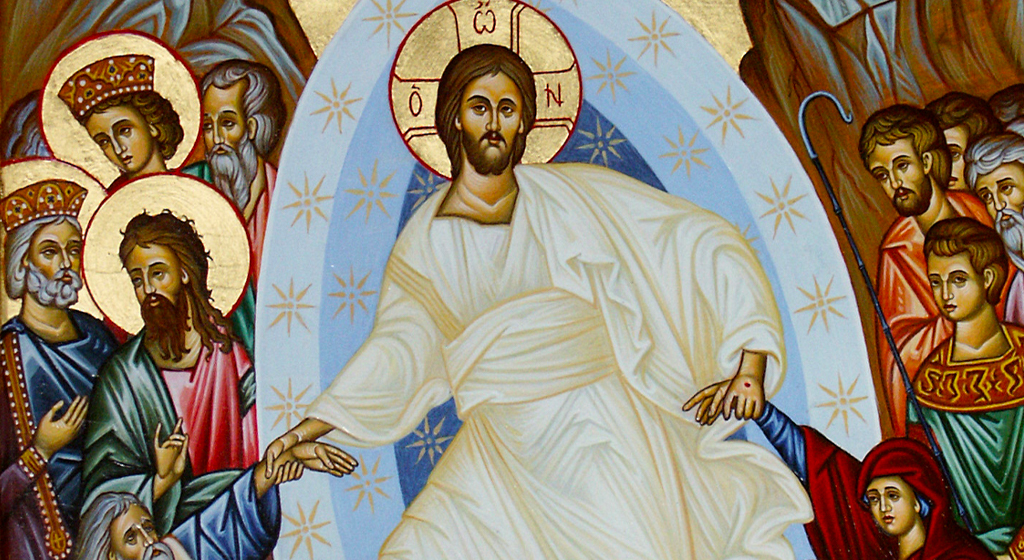Liturgy of the Sunday
Eleventh Sunday of Ordinary Time
Muslims celebrate the feast of the sacrifice (Aid-al-Adha).
First Reading
Ezekiel 17,22-24
"The Lord Yahweh says this: From the top of the tall cedar tree, from the highest branch I shall take a shoot and plant it myself on a high and lofty mountain. I shall plant it on the highest mountain in Israel. It will put out branches and bear fruit and grow into a noble cedar tree. Every kind of bird will live beneath it, every kind of winged creature will rest in the shade of its branches. And all the trees of the countryside will know that I, Yahweh, am the one who lays the tall tree low and raises the low tree high, who makes the green tree wither and makes the withered bear fruit. I, Yahweh, have spoken, and I will do it." '
Second Reading
2 Corinthians 5,6-10
We are always full of confidence, then, realising that as long as we are at home in the body we are exiled from the Lord, guided by faith and not yet by sight; we are full of confidence, then, and long instead to be exiled from the body and to be at home with the Lord. And so whether at home or exiled, we make it our ambition to please him. For at the judgement seat of Christ we are all to be seen for what we are, so that each of us may receive what he has deserved in the body, matched to whatever he has done, good or bad.
Reading of the Gospel
Alleluia, alleluia, alleluia
Yesterday I was buried with Christ,
today I rise with you who are risen.
With you I was crucified;
remember me, Lord, in your kingdom.
Alleluia, alleluia, alleluia
Mark 4,26-34
He also said, 'This is what the kingdom of God is like. A man scatters seed on the land. Night and day, while he sleeps, when he is awake, the seed is sprouting and growing; how, he does not know. Of its own accord the land produces first the shoot, then the ear, then the full grain in the ear. And when the crop is ready, at once he starts to reap because the harvest has come.' He also said, 'What can we say that the kingdom is like? What parable can we find for it? It is like a mustard seed which, at the time of its sowing, is the smallest of all the seeds on earth. Yet once it is sown it grows into the biggest shrub of them all and puts out big branches so that the birds of the air can shelter in its shade.' Using many parables like these, he spoke the word to them, so far as they were capable of understanding it. He would not speak to them except in parables, but he explained everything to his disciples when they were by themselves.
Alleluia, alleluia, alleluia
Yesterday I was buried with Christ,
today I rise with you who are risen.
With you I was crucified;
remember me, Lord, in your kingdom.
Alleluia, alleluia, alleluia
Homily
Jesus does not speak of the work of the farmer, but of the "work" of the seed that develops by its own internal energy, from when it is sown until it ripens, without the farmer intervening. With this image Jesus seems to want to comfort his listeners. Perhaps - so the scholars of the text think - we must think of the Christian community Mark was addressing, the community of Rome, which was experiencing difficult times, even persecution. And those early believers in Rome wondered where the power of the Gospel had gone, because evil seemed to be winning. The Lord does not abandon the disciples to the power of evil.
With the parable of the mustard seed, Jesus wants to show the style of the kingdom, the way in which it becomes true. And he insists on the smallness of the seed. One does not do great things because one is powerful. In the kingdom of God, the opposite happens: "He who wants to be first among you will be slave of all," says Jesus. In short, those who make themselves small and humble become a shrub as tall as three metres that can even accommodate the birds of the air. Already the prophet Ezekiel, while in exile in Babylon, had foretold that a fragile branch, like the tip of the cedar tree, would become a sturdy and restorative tree: "I myself will take a sprig from the lofty top of a cedar; I will set it out. I will break off a tender one from the topmost of its young twigs; I myself will plant it on a high and lofty mountain. On the mountain height of Israel I will plant it, in order that it may produce boughs and bear fruit, and become a noble cedar" (Ez 17:22-23).
The kingdom of God grows like this little mustard seed, like the little top of the cedar: they do not impose themselves by their outward power, it is the Lord who makes them grow. And love is the sap that sustains them. Where the poor are satisfied, the afflicted comforted, the stranger welcomed, the sick healed, the lonely comforted, the imprisoned visited, the enemies loved, there the kingdom of the Lord is at work.
